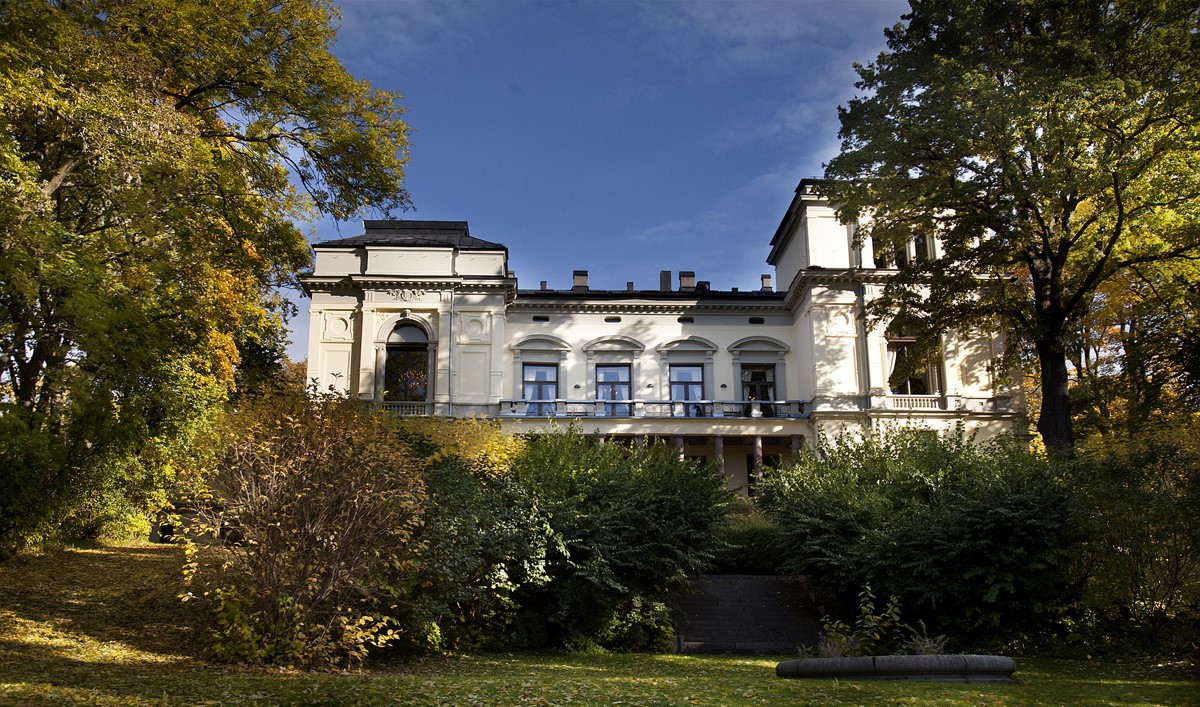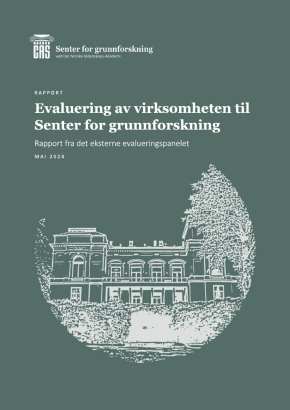Independent Evaluation of CAS
For the first time since 1998, the Centre for Advanced Study (CAS) underwent a comprehensive evaluation, initiated by the board of directors.

The evaluation, conducted by an independent panel, sought to assess the Centre’s contributions to scientific quality, its standing on the international research stage, and the effectiveness of its methodologies and objectives in today’s research landscape.
The evaluation panel was chaired by Professor Liselotte Højgaard from the University of Copenhagen and consisted of former director of the Research Council of Norway, Arvid Hallén, Professor Tuomas Forsberg from the University of Tampere, Professor May Brith Ohman Nielsen from the University of Agder, Associate Professor and former chair of The Young Academy of Norway, Nils Hallvard Korsvoll, and PhD Sigurd Jorem as the academic secretary.
Data for the evaluation came from several sources, including project reports, an external report by Nordic Institute for Studies in Innovation, Research, and Education (NIFU), and feedback from stakeholders.
CAS Research Grant and the Young CAS Grant
NIFU's study, which involved surveys of researchers who had worked at CAS and of the Centre’s partner institutions, yielded highly positive results. The evaluation states that “about 90% of surveyed researchers reported that their time at CAS had significantly enhanced their work. They emphasized the opportunities for academic immersion and for interdisciplinary and international collaboration”, highlighting CAS’s role in fostering international academic connections.

The panel’s evaluation emphasized CAS’s significant role in promoting high-level research across diverse disciplines, including natural sciences, humanities, and social sciences. The evaluation panel recognized that the CAS Research Grant (CRG) has “supported projects in the humanities and social sciences of a type that is difficult to fund elsewhere”. The CRG structure is highlighted as a unique concept that allows researchers to focus intensely on their work, free from day-to-day obligations. This collaborative approach, particularly in interdisciplinary settings, has proven to be a powerful catalyst for high-quality research, the panel noted.
The panel also praised the Young CAS Grant (YCG) as a valuable expansion of the Centre’s activities. The YCG supports early-career researchers, helping to strengthen scientific quality both in the short and long term. It’s noted that “the scheme is well-suited to its target group, as evidenced by both its effects and the number of applicants. YCG fulfils its function well and helps to strengthen scientific quality both in the short and long term.”
Institutional and Stakeholder Support
Surveys and interviews with CAS’s partner institutions expressed strong support for the Centre. CAS has been recognized as a vital institution for advancing basic research and helping researchers access other funding sources, such as grants from the European Research Council (ERC).
Stakeholders consistently regarded CAS as an important institution, noting that the Centre plays an essential role within Norway’s research ecosystem. We are happy to see that the center's capacity to create a conducive environment for groundbreaking basic research has been appreciated across the board. The panel recommends that the Centre and its partner institutions strengthen their collaboration, ensuring visibility and recognition of the CAS concept.
Conclusions and Recommendations
The evaluation panel concluded that CAS has been highly successful in its mission to promote high-quality basic research and foster collaboration across national and disciplinary boundaries. The Centre is recognized for its “professional leadership, for the many renowned researchers who have spent time there, and for the high quality of the research resulting from CAS projects”.
Despite being a relatively small investment from a research policy perspective, CAS is praised for giving researchers the opportunity to conduct basic research under nearly ideal conditions for research collaboration and innovative findings. The panel noted that “the centre's benefits extend to society, the researchers themselves, and the partner institutions.”
The evaluation also acknowledged the Centre's recent efforts to improve its operations and offered several recommendations for future development. Director Camilla Serck-Hansen expressed her joy with the evaluation’s findings and emphasized that the panel’s recommendations will be helpful in shaping the Centre’s continued growth and success.
We are very pleased to see that that the panel’s clear assessment is that CAS has largely succeeded in promoting high-quality basic research, and we look forward to further developing our grants and our cooperation with partner institutions.
The full evaluation report is available in Norwegian here.
Read the full report from NIFU here.